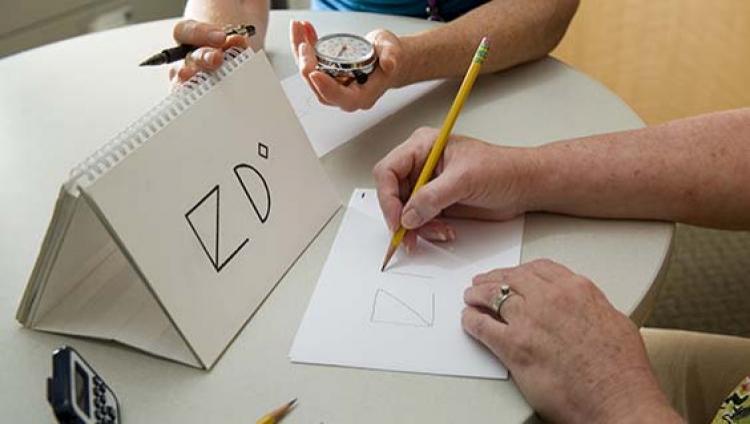As published on the AlzWA Blog by Genevieve Wanucha
We’ve all had those moments when absentmindedness gets the better of us. We may walk into a room, only to realize we’ve forgotten what we’d planned to do there. We may forget to turn off the stove or miss an appointment. As we age, we may notice it becomes harder to remember people’s names. With public awareness of brain aging and Alzheimer's disease risk growing, it’s understandable for adults to wonder whether moments of forgetfulness could be signs of something more serious, such as mild cognitive impairment (MCI). Health care professionals working in the aging field often find themselves faced with questions about this common worry.

Dr. Kristoffer Rhoads, PhD, UW Medicine
What is MCI, exactly? Only a physician can diagnose the condition of mild cognitive impairment, using objective cognitive test results that show a decline in a person’s performance from the past. People living with mild cognitive impairment continue to function independently in their daily lives, but they may need some help with complex functional tasks. For example, people with mild cognitive impairment may take a little while longer to handle paying bills or prepare a meal.
At the 2021 Discovery Alzheimer’s Regional Conference, neuropsychologist Dr. Kristoffer Rhoads, PhD, will present the session: “What is MCI?” This talk will tackle all the complex, yet pressing questions surrounding the issue of mild cognitive impairment. How is it related to dementia? Why do so many physicians diagnose dementia as MCI instead of telling people they have dementia? Do all people with MCI go on to develop dementia? Is it progressive? What steps can individuals take to protect or strengthen their cognitive skills? Register here.
Dr. Kristoffer Rhoads, associate professor in the Department of Neurology at UW Medicine, currently serves as the primary clinical neuropsychologist for the Memory and Brain Wellness Center at Harborview. He specializes in the evaluation and non-pharmacological treatment of memory and neurological disorders, and cognitive rehabilitation. His research interests include screening and early detection of cognitive impairment, non-medication interventions for memory loss, and cross-cultural dementia evaluation and care.
The session will leave professionals with a greater understanding of normal, age-associated changes in memory and thinking, the difference between MCI and dementia, risk factors for developing MCI or progressing from MCI to dementia, as well as lifestyle and health interventions to minimize risk.
In this uncertain time, we often find ourselves distracted or lost in thought even more than usual. You don’t need to wait until the Discovery conference to benefit from the expertise of Dr. Rhoads, who believes that the practice of mindfulness meditation can offer a sense of calm and lead us to fully appreciate the gifts of each day, as well as reduce stress and promote brain health. Through the Frye Art Museum, Dr. Rhoads regularly offers virtual Mindfulness Meditation sessions. All recordings are available here to enjoy.
-
Registration is now open for the Discovery Alzheimer’s Regional Conference. Join us on April 23, 2021 for the premier educational event in the Pacific Northwest for healthcare professionals working in the aging and dementia fields. Learn more and register at alzwa.org/conferences.
Thank you to our Presenting Sponsors, CarePartners Senior Living and Koelsch Communities, for making this conference possible.





